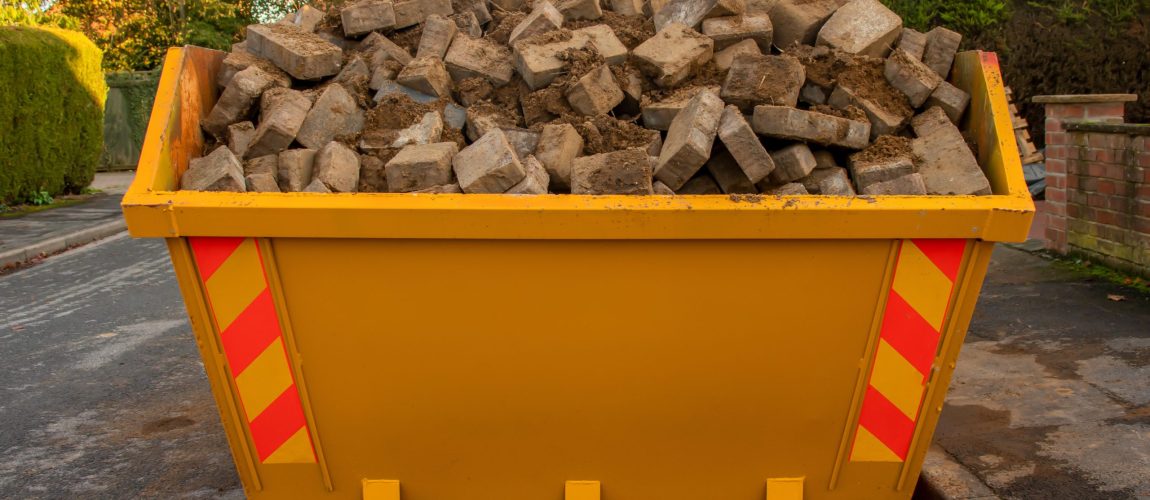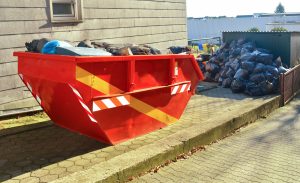The bustling city of Birmingham, often dubbed the ‘Second City’ of the UK, boasts an impressive tapestry of historical, cultural, and industrial milestones. Amongst the myriad of stories that make up this city’s past, an often overlooked yet vital chapter is that of skip hire.
While it may sound mundane, skip hire has played an instrumental role in the evolution of Birmingham’s waste management and construction industries. This article takes you on a journey through the history of skip hire in Birmingham, illustrating its growth and significance.
The Early Days:
The origins of skip hire in Birmingham can be traced back to the post-World War II era. The city, having endured significant bombing and subsequent reconstruction efforts, was faced with the challenge of disposing of enormous amounts of rubble and waste. Traditional methods of waste disposal, which often involved horse-drawn carts, were no longer sufficient. The demand for a more efficient solution led to the early adoption of skips – large metal containers designed for holding waste.
In the beginning, these skips were rudimentary in design and were primarily used by large corporations and the city council. Local businesses saw the potential in providing a service to smaller builders and homeowners. Thus, the first skip hire companies began to emerge.
The Growth and Expansion:
The 1960s and 1970s marked a period of significant growth for Birmingham. The construction industry boomed, and urbanisation expanded rapidly. As buildings rose and older structures were renovated or torn down, the need for effective waste disposal became paramount. Skip hire, with its promise of convenience and efficiency, became a go-to solution.
During this era, several local entrepreneurs recognised the growing demand and established their own skip hire businesses. They started offering various skip sizes, catering to both domestic and commercial needs. What began as a few companies soon mushroomed into a bustling industry.
Regulations and Environmental Concerns:
The 1980s brought along a newfound awareness of environmental concerns. Landfills were overflowing, and the dangers of irresponsible waste disposal became evident. Birmingham, like other major cities, faced the challenge of managing its waste in a sustainable manner.
It was during this period that regulations around skip hire and waste disposal started to tighten. Licenses were required for companies to operate, and standards were set for the disposal of different types of waste. The city council began to work closely with skip hire companies, ensuring that waste was being sorted and recycled wherever possible. The concept of ‘green skips’ was introduced, where companies promoted eco-friendly disposal methods.
The Modern Era:
The turn of the century saw technological advancements influencing the skip hire industry in Birmingham. Online booking systems, GPS-tracked pick-ups, and more efficient recycling methods changed the way the business operated. The emphasis shifted from merely collecting and dumping waste to managing it in the most sustainable way possible.
Skip hire companies started offering bespoke solutions to customers, ensuring minimal wastage. Additionally, with the rise of home renovations and DIY projects in the 21st century, the demand for mini-skips and midi-skips surged. Birmingham’s skip hire industry was not just catering to large construction sites but also to individual homeowners.
Challenges and Future Outlook:
Like every industry, skip hire in Birmingham has faced its share of challenges. Rising costs, increased regulations, and the global push towards sustainability mean that companies have to be more innovative than ever. There’s also been a push to reduce the carbon footprint, urging companies to invest in eco-friendly vehicles and disposal methods.
However, the resilience and adaptability of this industry have been evident throughout its history. As Birmingham continues to grow and evolve, so will its skip hire needs. With a focus on sustainability and efficiency, the future looks promising.
Conclusion:
The history of skip hire in Birmingham is a testament to the city’s ability to adapt and innovate. What started as a simple solution to a post-war problem has evolved into a sophisticated industry, integral to the city’s growth and development. As we look to the future, it’s clear that skip hire will continue to play a pivotal role in Birmingham’s story, reflecting its commitment to progress, sustainability, and community welfare.








